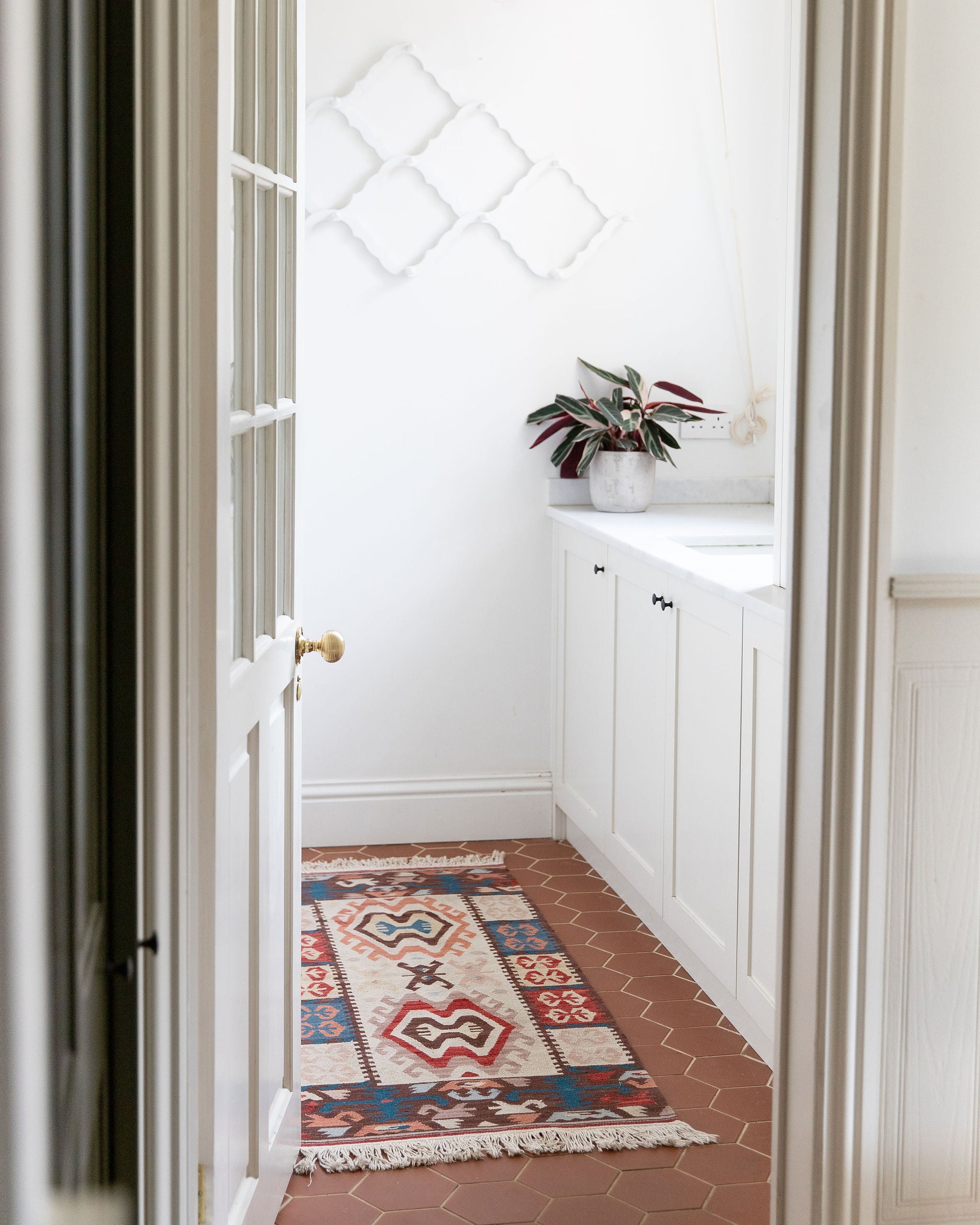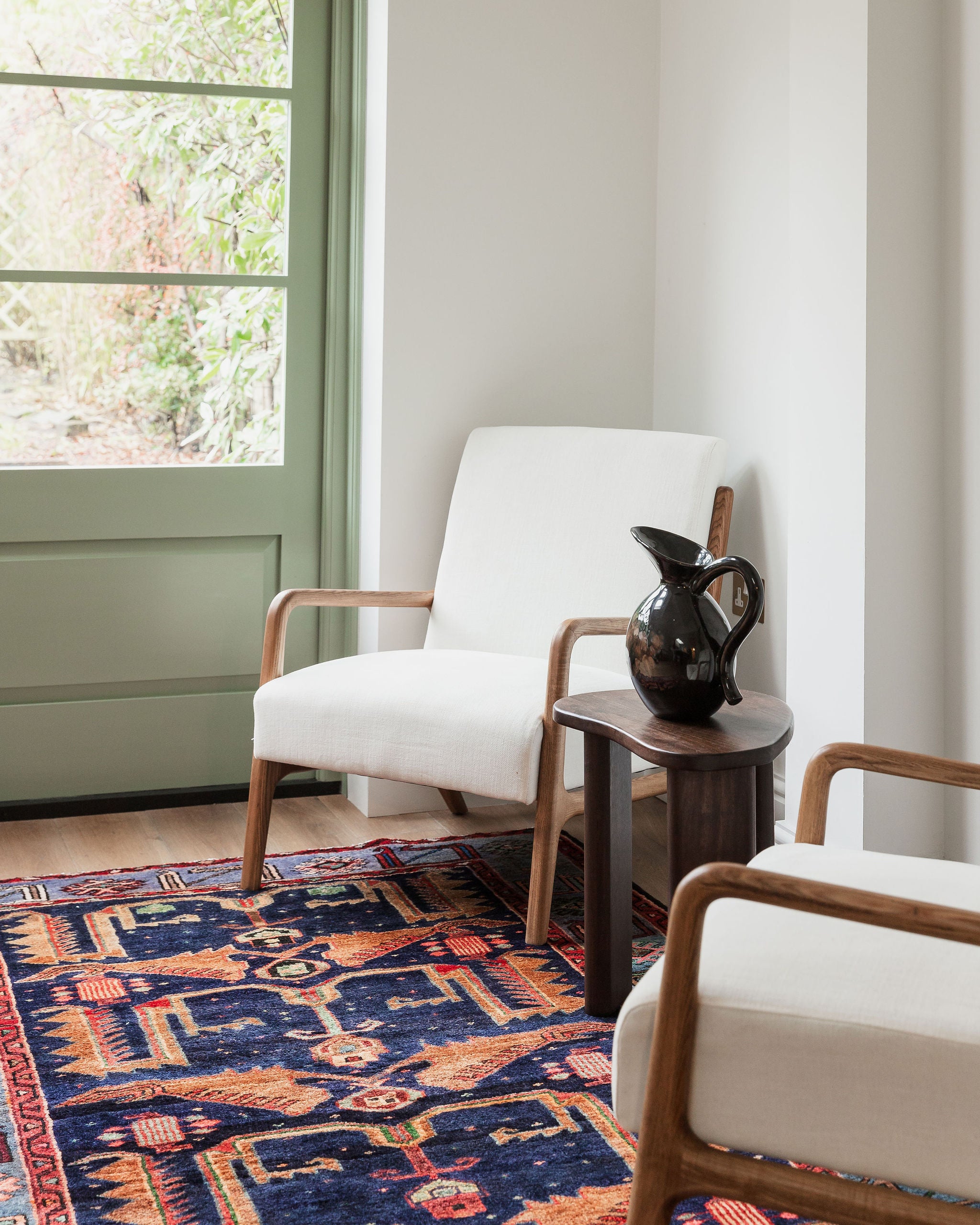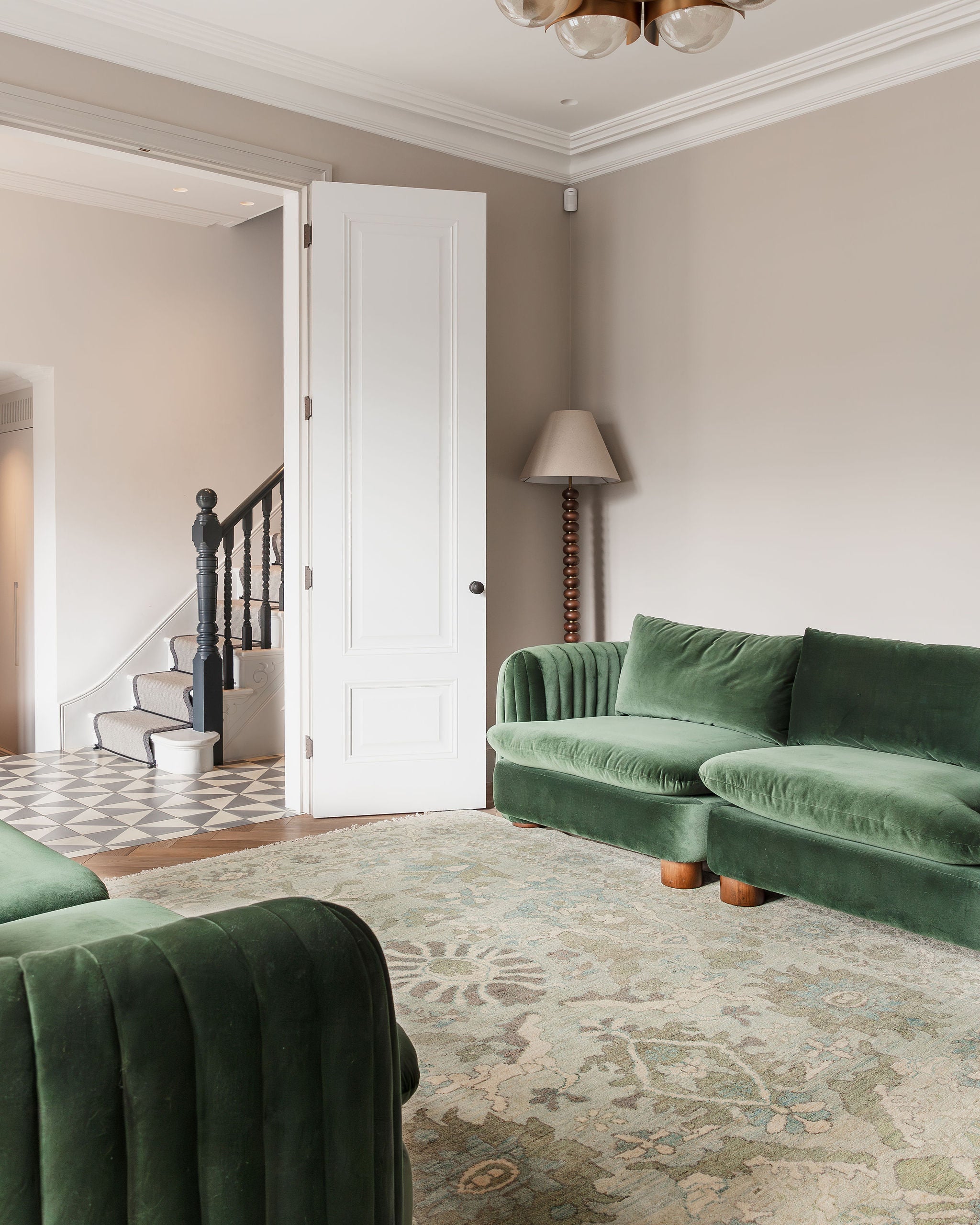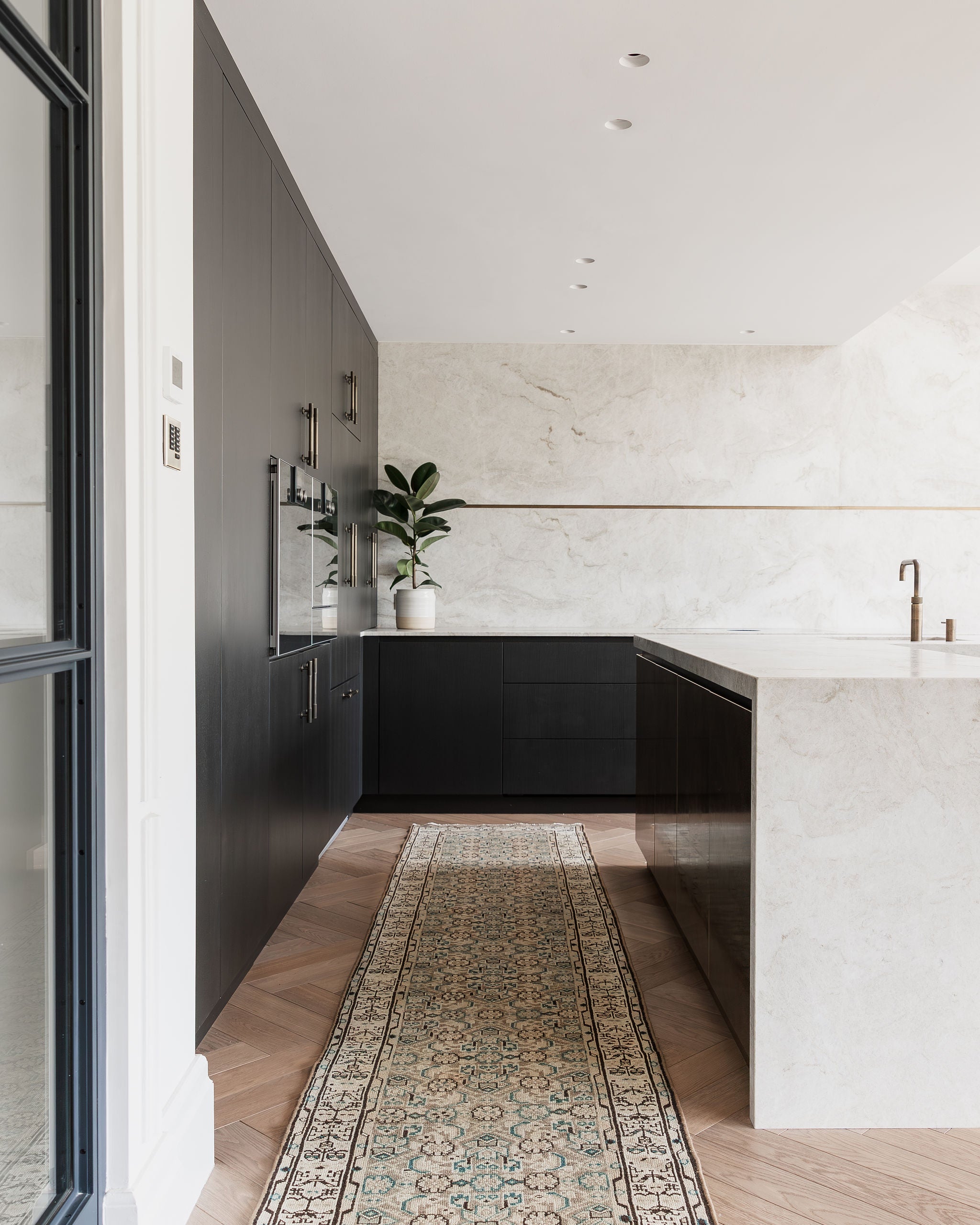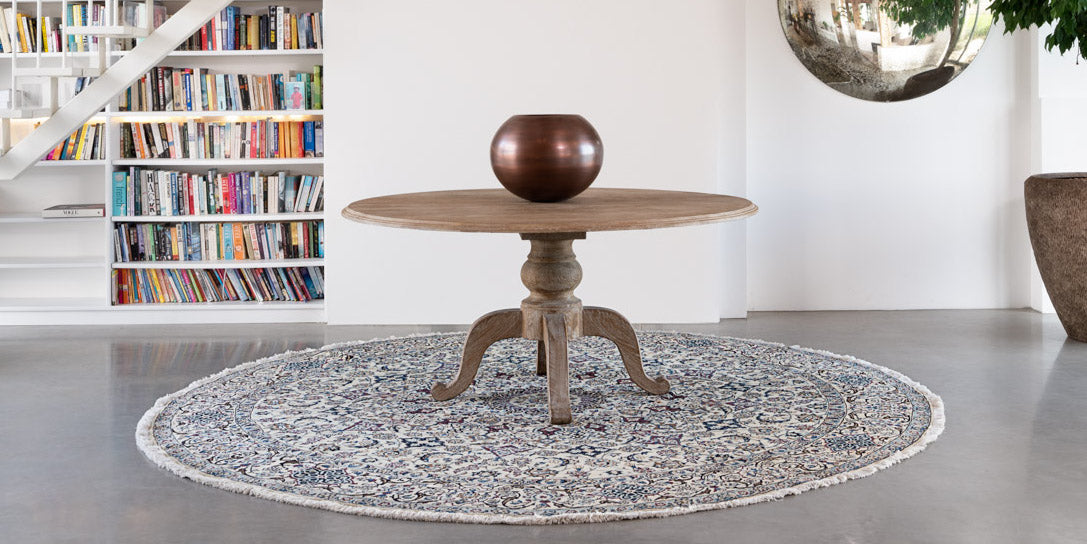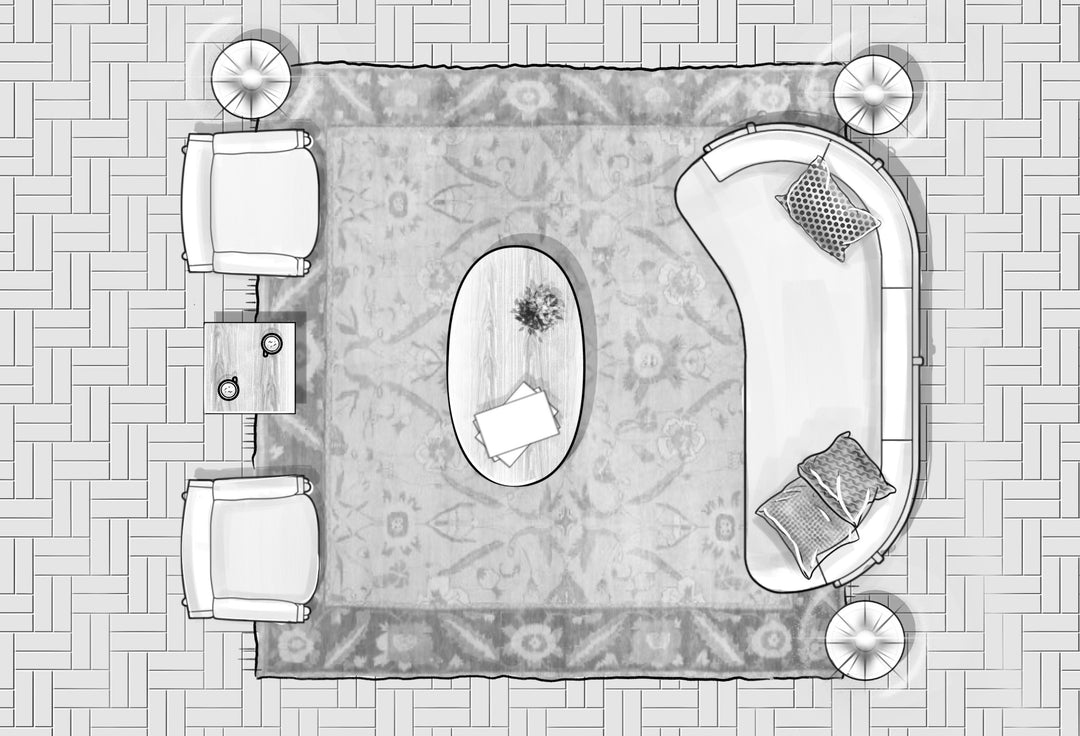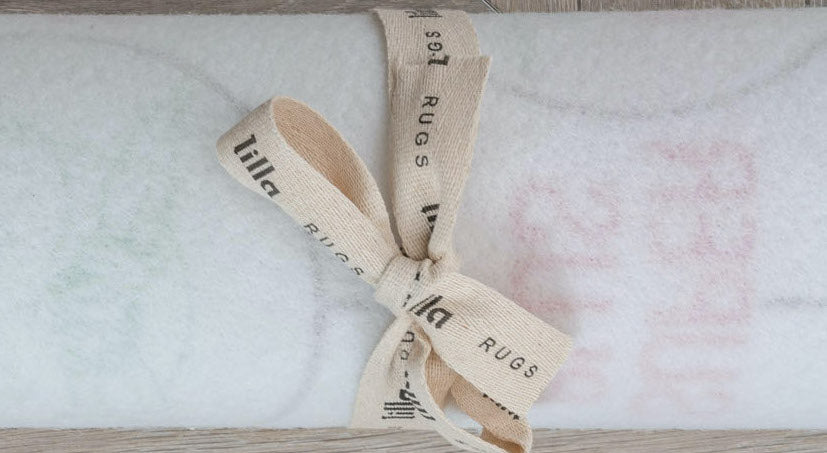An Interior Design Staple: The Wishbone Chair
The Wishbone Chair, designed by Hans Wegner in 1949, is more than just a piece of furniture; it's a symbol of timeless elegance and craftsmanship. This chair has become a favourite among interior designers and design enthusiasts alike, and for good reason. Let’s delve into why the Wishbone Chair is the most used in interior design.
1. Timeless Design
Elegant Simplicity
The Wishbone Chair, also known as the CH24, boasts a minimalist yet sophisticated design. Its clean lines and organic form make it versatile enough to complement various interior styles, from Scandinavian and mid-century modern to contemporary and even traditional settings. We have shot the wishbone chair with very different styles of rugs over the years, and it always blends beautifully.

Natural Materials
Crafted primarily from wood, often with a paper cord seat, the chair's natural materials add warmth and texture to any space. The use of high-quality wood like oak, walnut, or beech ensures durability and a rich, natural aesthetic that ages beautifully over time.
2. Craftsmanship
Handcrafted Excellence
Each Wishbone Chair is meticulously handcrafted, often requiring over 100 steps to complete. This dedication to craftsmanship results in a chair that is not only visually appealing but also robust and long-lasting.
Ergonomic Comfort
Despite its simple appearance, the Wishbone Chair is designed with comfort in mind. The gently curved backrest and spacious seat provide ergonomic support, making it a comfortable choice for dining, working, or relaxing.
3. Versatility
Adaptable Style
One of the key reasons for the Wishbone Chair's popularity in interior design is its versatility. It seamlessly fits into various room settings, whether it's a dining room, living room, home office, or even a bedroom. Its ability to blend with different decor styles makes it a go-to piece for designers.

Colour and Finish Options
The Wishbone Chair comes in a variety of finishes and colours, allowing designers to customise it according to their vision. Whether in natural wood tones, painted finishes, or more modern hues, there's a Wishbone Chair to suit every aesthetic.
4. Iconic Status
Design Heritage
As an iconic piece of Danish modern design, the Wishbone Chair carries with it a rich heritage. It’s a testament to Hans Wegner’s design philosophy of combining form and function, making it a cherished piece in any interior.
Cultural Impact
The Wishbone Chair has not only stood the test of time but has also made a significant cultural impact. Its presence in numerous high-profile interiors, magazines, and design exhibitions has cemented its status as a design classic.
5. Sustainability
Eco-Friendly Choices
In today's design landscape, sustainability is a major consideration. The Wishbone Chair’s use of natural materials and traditional craftsmanship methods aligns with eco-friendly values. Many manufacturers also focus on sustainable practices, making the Wishbone Chair an environmentally conscious choice.
Longevity
The high-quality construction and timeless design ensure that the Wishbone Chair remains a long-lasting piece. Instead of being replaced frequently, it’s a chair that can be passed down through generations, reducing the need for new furniture production.
The Wishbone Chair’s enduring popularity in interior design is no accident. Its blend of timeless design, impeccable craftsmanship, versatility, iconic status, and sustainability makes it a beloved choice for designers and homeowners alike. Whether you're furnishing a modern loft or a cozy cottage, the Wishbone Chair offers a perfect balance of form and function, making it a staple in the world of interior design.


